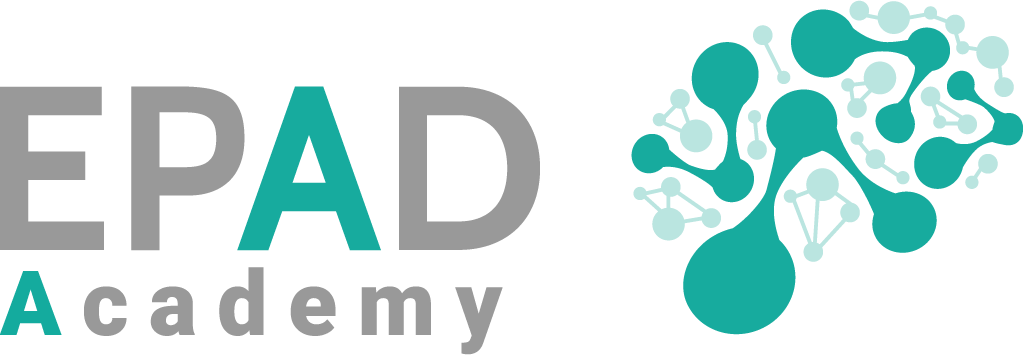The EPAD fellows will be pivotal in the crafting of the future of AD research and can take the baton for 2020 – 2040.

EPAD Co-coordinator and Professor of the Psychiatry of Ageing at the University of Edinburgh

The EPAD fellows will be pivotal in the crafting of the future of AD research and can take the baton for 2020 – 2040.
I hope that the EPAD Academy will become a close circle of researchers who will be providing support to nourish a new generation of academics in the field of dementia.
Like many other public-private partnerships, EPAD gathers an amazing range of research expertise and experience. Most academic partners usually involve young researchers as they build their teams for their assigned tasks. However, the relationship of these early career researchers with the project itself is often very asymmetrical – they usually contribute in very significant ways to the project’s success (and some even become true project champions), but are typically isolated in ‘niches’ pertaining to their respective specific tasks and research areas, therefore benefitting relatively little from being exposed to such a unique world-class environment. The concept of the EPAD Academy originated from a realisation that EPAD was an ideal framework for young researchers (‘EPAD Fellows’) to grow professionally, expand their views, enhance multidisciplinary perspectives and multiply the impact on their future careers – effectively helping to build the next generation of thought leaders in Alzheimer’s research. This however rarely happens organically; it would require a focused effort to understand and fulfil the needs of young researchers, leveraging the resources that the project creates during its development for maximum effect.
The EPAD Academy activities are therefore expected not only to ensure proper exposure of young researchers to the scientific richness of the project and different environments outside their own labs, but also to provide them with training, help them to publish, design new research projects, use project data, build their networks, think outside the box, etc. Expanding the horizons of our EPAD Fellows will surely contribute to faster and better research on Alzheimer’s Dementia in the next decade.
The EPAD consortium wishes to congratulate Lisa Vermunt and Lucy Stirland, two EPAD fellows, on successfully defending their PhD thesis in March 2020. It was two great days and we…
DetailsAlzheimer’s Research UK is Europe’s largest charity funder of dementia research. Worth £25,000 in research expenses with a £1,500 personal prize, the David Hague Early Career Investigator of the Year…
DetailsThe European Young Researchers’ Award (EYRA), granted by EuroScience since 2010, aims to inspire early stage researchers in all research areas to incorporate a European dimension and perspective into their…
DetailsWhat is your current role in EPAD? I am the resident Data Scientist based at the University of Edinburgh and I work closely with the International Coordinator for EPAD work…
DetailsLisa Vermunt (VUmc) and Delia Gheorghe (UOXF), our young researchers, have presented EPAD at the IMI Scientific Symposium in October. Lisa and Delia were happy to answer some of our…
DetailsEPAD Academy webinars are held by world-class senior researchers on current topics in Alzheimer’s Dementia research for young researchers. Fourteen webinars have been scheduled for 2018. In order to promote…
DetailsThe European Prevention of Alzheimer’s Dementia (EPAD) project launched in 2017 its EPAD Academy that is aiming to efficiently leverage EPAD resources to foster and develop academic research capacity and…
DetailsThe European Prevention of Alzheimer’s Dementia (EPAD) project launched in 2017 its EPAD Academy that is aiming to efficiently leverage EPAD resources to foster and develop academic research capacity and…
DetailsOn 15 June, the European Prevention of Alzheimer’s Dementia (EPAD) project announced the launch of its EPAD Academy that is aiming to efficiently leverage EPAD resources to foster and develop…
Details
